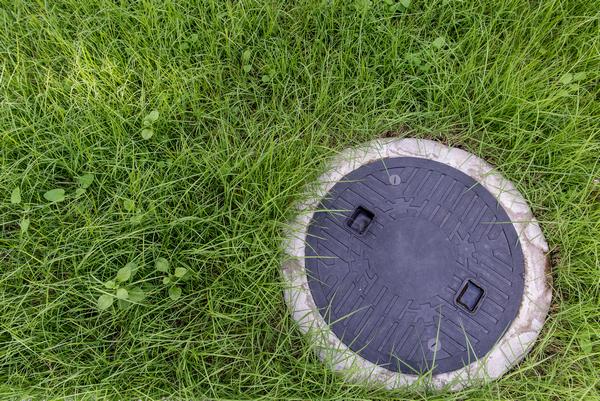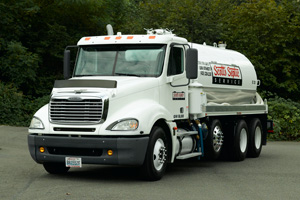- (253) 261-3453
- (206) 878-6873
- (425) 228-1150
- Mon-Fri 8am-6pm, Sat 9am-3pm






- (253) 261-3453
- (206) 878-6873
- (425) 228-1150
- Mon-Fri 8am-6pm
- Sat 9am-3pm




Pumping South King County for over 20 years!
You can reach out to me via text or call to (253) 261-3453. You can also give me a call at (206) 878-6873 or (425) 228-1150.
Working time:8:00 am–6:00 pm
Auburn Septic Tank Alarm
When it comes to maintaining our homes in Auburn, WA, one essential aspect that often gets overlooked is our septic systems. A well-functioning septic tank is crucial, and a septic tank alarm serves as our first line of defense against potential failures. Did you know that about 1 in 5 households rely on septic systems? This makes having an effective alarm system vital for safeguarding our properties and ensuring the health of our community.
At Scott’s Septic Service, we understand the unique needs of our local residents. Our services not only cover septic tank cleaning and maintenance but also include comprehensive septic alarm monitoring. This is particularly important in our area, where heavy rainfall and soil conditions can affect septic performance. Regular checks and timely interventions can save us from costly repairs and environmental issues.
Here are some key points to consider regarding septic tank alarms:
- Septic tank alarm going off indicates a potential issue.
- Understanding why is my septic alarm beeping can prevent system failures.
- A septic tank high level alarm alerts us to urgent maintenance needs.
- Knowing about septic tank warning alarms can help us take immediate action.
- Septic alarm troubleshooting can save us time and money.
By being proactive about our septic systems, we can avoid major headaches down the road. Having a functioning septic tank alarm is not just a convenience; it’s a necessity for all of us in Auburn. For more information on how to keep our septic systems in check, we encourage you to reach out to Scott’s Septic Service at (253) 261-3453 or visit our contact page.
Auburn Septic Tank Monitoring
In our beautiful city of Auburn, septic tank monitoring is an essential service that many homeowners might not fully appreciate. An effective monitoring system can significantly reduce the risk of septic failures, which can be both messy and costly. According to the EPA, improper maintenance of septic systems can lead to environmental contamination, making it vital for us to stay on top of our monitoring efforts.
Regular monitoring ensures that our septic systems are functioning correctly, allowing us to address any issues before they escalate. With the unique soil and rainfall conditions in Auburn, this vigilance is especially important. It’s our responsibility to keep our systems in optimal condition, and that’s where reliable monitoring comes into play.
Here are some essential aspects of septic tank monitoring:
- A septic tank alarm system alerts us to potential issues.
- Understanding how does septic alarm work can empower us as homeowners.
- A septic tank float alarm is crucial for detecting rising water levels.
- Septic tank monitor alarm systems can help prevent costly repairs.
- Regular monitoring can extend the life of our septic systems.
Staying informed about our septic systems can save us from unnecessary stress and expense. By prioritizing septic tank monitoring, we can protect our homes and the environment in Auburn. If you’d like to learn more about effective monitoring solutions, don’t hesitate to contact us at (253) 261-3453 or visit our contact page.
Auburn Septic Malfunction Alarm
For those of us living in Auburn, a septic malfunction alarm can be a real lifesaver. These alarms are designed to alert us to potential problems within our septic systems, helping us prevent more significant issues before they arise. It’s alarming to know that about 50% of septic system failures are due to lack of maintenance, highlighting the importance of being vigilant.
Understanding the signs of a malfunction is critical for all of us. With the right knowledge and tools, we can act quickly and efficiently, ensuring our systems remain functional and safe. In a community like ours, where many homes rely on septic systems, it’s essential to stay proactive about these alarms.
Here are some key considerations regarding septic malfunction alarms:
- Septic alarm going off may indicate a serious issue needing immediate attention.
- Recognizing septic tank warning alarms can save us from significant damage.
- Understanding septic system alarm meaning helps us respond appropriately.
- Knowing how to silence septic alarm can prevent unnecessary stress.
- Being aware of septic high level alarm triggers can keep our systems safe.
By staying informed and prepared, we can handle any septic issues that arise, ensuring our homes remain healthy and safe. If you want to know more about how to monitor your septic systems effectively, contact Scott’s Septic Service at (253) 261-3453 or check out our contact page for assistance.
You can reach out to me via text or call to (253) 261-3453. You can also give me a call at (206) 878-6873 or (425) 228-1150.
Common Septic Questions(FAQ)
We recommend not using a garbage disposal with a septic system. The use of a garbage disposal will dramatically effect the amount of scum and sludge produced, and will significantly increase your need for pumping.
The main components of a septic system are:


